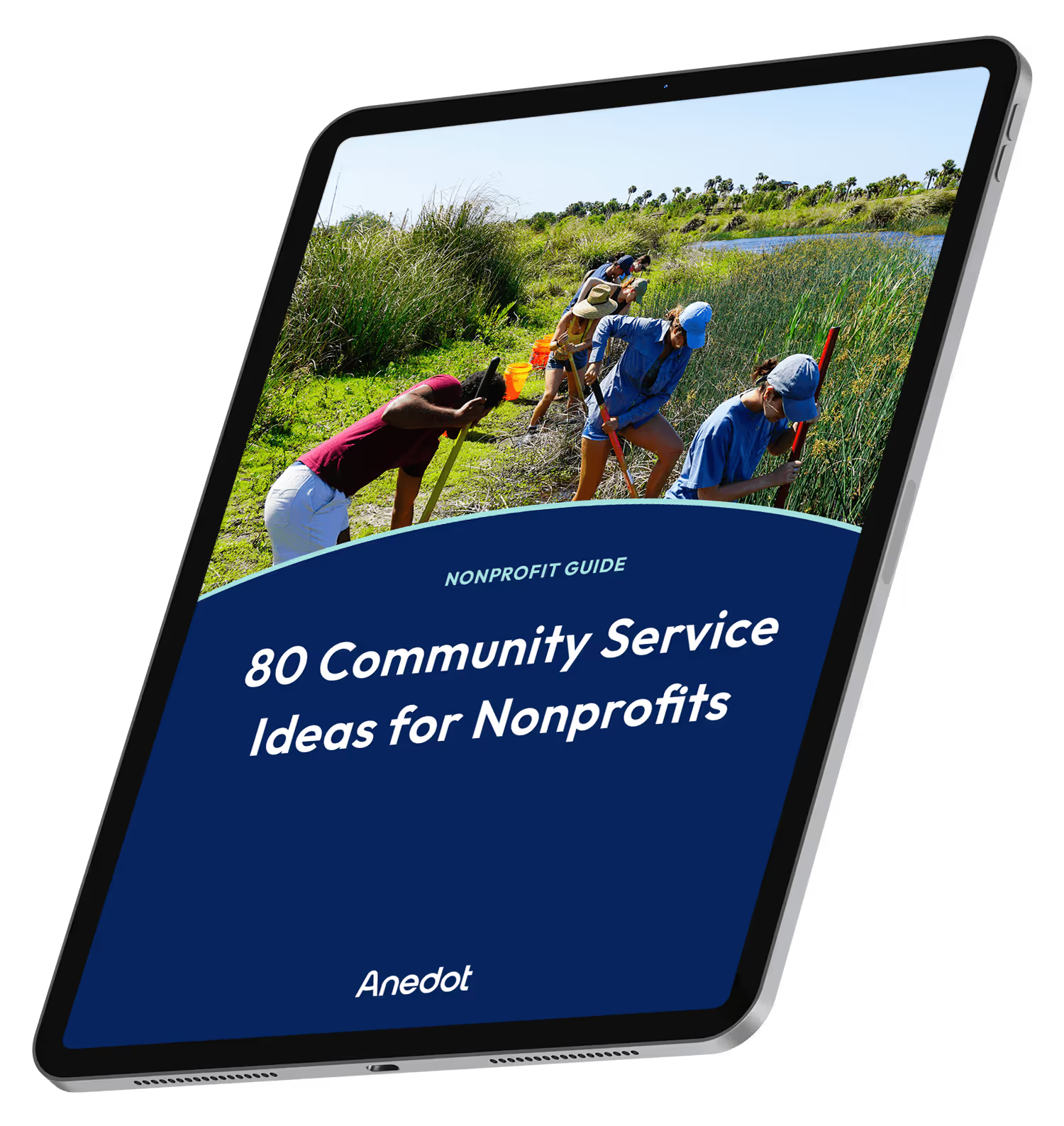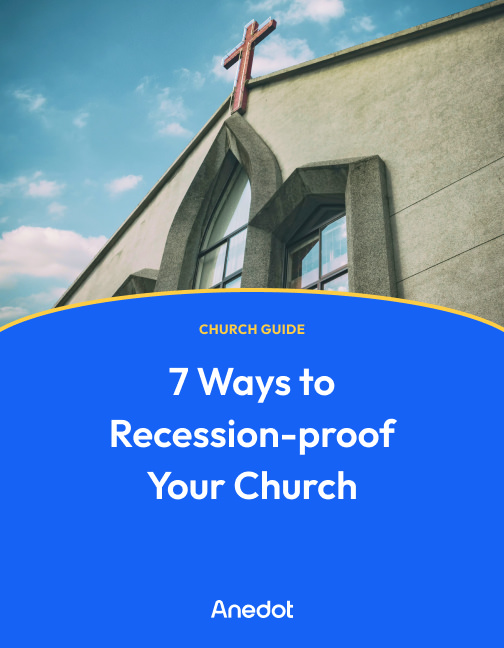At the time of this writing, the world continues to reel from varying degrees of inflation.
Supply chain disentanglements take time. Money pumped into the economy affects what people can afford, even if temporarily. Corporations raise prices. Interest rates are up.
The stock market in America is an overstimulated toddler.
In the midst of all this, parachurch ministries need funds—sometimes more than usual—to continue doing the ministry God has called them to do.
Sometimes it helps to review things leaders should and should not do when a crisis hits. Here are 10 ministry fundraising do’s and don’ts to set your parachurch ministry up for success.
Do: Reemphasize the mission and vision of your ministry

When money is tight and households are reevaluating their budgets, people will generally give where they feel like their donations support things they believe in most strongly.
When the option is between your ministry, an annual magazine subscription, or a gym membership, how can you best convince your supporter to keep supporting. One way is to remind them why they supported you in the first place.
Here are a few ways you can reemphasize your mission and vision:
- Include your mission and vision in every communication
- Using specific examples, remind your donors how their donations support the mission and vision
People need to be “inspired by your mission, and feel compelled to help,” to raise awareness but…
Don’t: Be manipulative

One temptation leaders face when donations start faltering is to make emotional appeals.
If “build it and they will come” worked in Field of Dreams, then “cry and donations will come” must be inscribed on a corn-field marker somewhere.
The reason we see emotional appeals is because they so often work.
To be sure, watching the inflows diminish as the outflows continue can be emotional for a leader, and there is nothing inherently wrong with showing or relaying emotion to supporters.
But, don’t let it turn into manipulation where raising money, rather than doing ministry, becomes the main thing.
Do: Give updates

The same people who give because they want to make a difference need to be assured their gifts are making a difference.
Don’t rely on an end-of-year ministry update to provide all the information they need.
If you have found it necessary to make special appeals during trying times, more updates are warranted to show how those donations were put to use.
Don’t leave people hanging, wondering if the appeal was legitimate. Uncertainly give them a reason to pull their support.
Utilize such options as:
- A video interview with a staffer who can explain facts of the ground.
- A video or podcast interview with people who have benefitted from the continued ministry of your organization.
- A brief but thorough email or letter explaining what has happened since your last appeal.
Don’t: Be alarmist

Similar to “don’t be manipulative,” do not lead people to believe the sky is falling when all the clouds are in place. Do not start the sirens when no one is speeding. Save any alarm until the danger cannot otherwise be avoided.
Aesop’s “The Boy Who Cried Wolf” taught many of us when we were still children of the danger of false-alarmism; it’s a lesson to keep in mind when leading. Eyes and ears will eventually numb to the leader who cannot tell the difference between another day and Judgment Day.
Leaders must be able to communicate facts—even facts that paint a bleak picture—with hope. Hope is better than alarmism. I’m not talking about the “It’s fine” dog in a burning house.
Things may not be fine. But if the house is on fire, help your supporters see hope on the other side of the heat.
And make sure it is a fire, not just a hot day in August.
Don’t: Expect every donor to give the exact same way

Very few parachurch ministries (or any nonprofits, really) have the luxury of über-wealthy benefactors, those who virtually unaffected by the economic waves. Most donors are those whose financial boats are tossed to-and-fro in the storm.
Like the widow and her coins, do not disparage the day of small gifts. Remember that, for some, giving a little costs a lot, while for others giving a lot costs a little.
Encourage each to give as they can while avoiding the kind of comparisons that make small donors feel inadequate or unneeded.
On the other hand, don’t overlook that some donors, in addition to cash, can give valuable gifts “in-kind.” That is art, stocks, bonds, real estate, and no other non-cash contributions.
Make sure your organization is prepared to receive donations that are not cash, check, or PayPal.
Do: Provide multiple ways for donors to give

And speaking of mobile payments, it has been quite some number of years since appeals could only be satisfied by sending a check or making a phone call with your credit card information.
Now, donors have a plethora of ways to give. It’s important to make giving as seamless as possible in normal times.
Giving donors options that make giving easy is even more crucial when they are reviewing household budgets in ways that might affect the ministry.
Consider:
- Automated giving rather than one-off donations.
- Bank transfer (ACH) rather than credit/debit cards.
- Mobile payment systems like PayPal.
- Digital payment systems like Apple Pay and Google Pay.
Paths to giving is where Anedot excels. Providing flexible donation options strengthens your parachurch ministry.
Given that the average age of charitable donors increased from 62 in 2016 to 65 in 2021, there is plenty of opportunity to engage younger generations through these more recent giving innovations.
Do: Encourage generosity

The Apostle Paul recounted to the Corinthian church how their Macedonian brothers and sisters gave generously even in the midst of extreme poverty (Second Corinthians 8:1–2).
People need not be flush with cash in order to be generous because generosity is a condition of the heart not of the bank account. People should be encouraged—not pressured—to give even when times are challenging.
A sometimes-overlooked component of generosity is a lot of people genuinely love to give. Berating them is not necessary; they are just waiting for the next opportunity.
They give out of joy not guilt and they will give even when times are tough. Encourage them to continue being generous.
Consider ways to make their gift have more significance:
- Give opportunities for gifts “In Honor Of” with an email generated to the honoree if so desired.
- Give opportunities for gifts “In Memory Of” someone who has passed away.
- Give an option for such gifts to be publicized either in a summary email or on a page on your website.
Don’t: Create an either/or situation

Don't create a either or situation between your organization and the donor’s church, synagogue, mosque, and the like.
People who support ministries like a regional food bank or an organization designed to foster cooperation between religions are likely to be funded by people who have as a first priority their own “house of worship.”
Be careful not to give an appearance of siphoning funds away from these other bodies, or creating a “zero sum” situation, lest the leaders there become apprehensive about their relationship with your ministry.
Outside organizations will usually be second on those donor’s list and it is better to be second than off the list altogether.
Creating a both/and giving opportunity, emphasizing the importance and role of both will help donors navigate a difficult situation where keeping both is a more palatable decision than nixing one or the other.
Do: Ask for financial support

Even considering needed precautions, you still have to make the appeal! You have to let your donors know what your needs are, especially if your needs are outpacing support.
There are ways to ask that neither manipulate people’s emotions nor are alarmist. Since 77% of people believe supporting causes makes a difference, you don’t have to convince them it’s important; they already believe that.
Here are three things to address:
- Relate to them in your appeal by emphasizing difficult times are affecting almost everyone. They are not the only ones making tough choices.
- If your ministry directly assists people in need, remind your supporters their gift, even if small, when combined with other small gifts, will go a long way toward helping others.
- Specify what a single gift of $10, $20, $25 (or any amount) can fully support when they give it. Buying “two cans of baby formula” or “one box of fresh vegetables” captures the attention in a way “replenish the general fund” never will.
Don’t: Be extravagant

It could be said that one person’s extravagance is another person’s everyday living, but in the case of a parachurch ministry, there should never be an accusation of being overly extravagant.
Make sure how you spend donations aligns squarely with your mission and vision. Don’t allow materialistic excess to destroy the trust of your donor base. It is more important to keep the heart of your average donor with your frugal operation than to impress a major donor with lavish decoration.
Difficult times can bring difficult choices for donors. But take heart! The same mission and vision that attracted your supporters is the same one that can keep them.
Giving options help people make the decision to stay with you, a decision they often want to make already!
Learn from these simple do’s and don’ts and your parachurch ministry will be set to come out the other side strong, renewed, and focused on the goal to which it has been called.

80 Community Service Ideas for Nonprofits


























